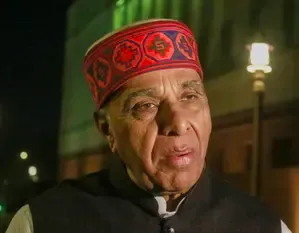JPC Approves Waqf Bill with 14 Amendments

Synopsis
Key Takeaways
- JPC approved Waqf Amendment Bill with 14 amendments.
- Voting results showed 16 in favor, 10 opposed.
- A total of 66 amendments were proposed.
- Discussions were extensive and democratic.
- Deadline for recommendations extended to February 13.
New Delhi, Jan 27 (NationPress) The Joint Parliamentary Committee (JPC) has successfully passed the controversial Waqf Amendment Bill, approving 14 amendments proposed by members of the BJP-led National Democratic Alliance (NDA) on Monday.
This bill aims to reform the administration of Waqf boards nationwide and was approved by the JPC with a vote margin of 16:10 (16 from NDA and 10 from Opposition parties).
Reports indicate that a total of 66 amendments were suggested for the Waqf bill, with 23 coming from ruling BJP MPs and 44 from members of the Opposition.
JPC chairman and BJP MP Jagdambika Pal addressed the media, stating that this was the concluding meeting of the Parliamentary panel, confirming that 14 amendments were passed by a majority.
“Over the past six months of discussions, we examined numerous amendments. All were voted on today, resulting in 16 in favor and 14 against,” he shared with reporters.
BJP MP and JPC member Aparajita Sarangi emphasized that the discussions regarding the Waqf bill amendments were conducted thoroughly and democratically, leading to the approval of the 14 amendments after proper procedure.
Past JPC meetings have been marked by chaos, with the Opposition accusing the committee chairman of bias toward the ruling party. They also alleged that the process was being expedited to create a narrative ahead of upcoming Assembly elections in the national capital.
These accusations were dismissed by BJP MP Aparajita Sarangi, who asserted that every member was given adequate time to voice their opinions to the JPC chief.
Originally, the JPC was required to submit its recommendations by November 29, but the deadline has now been extended to February 13.









